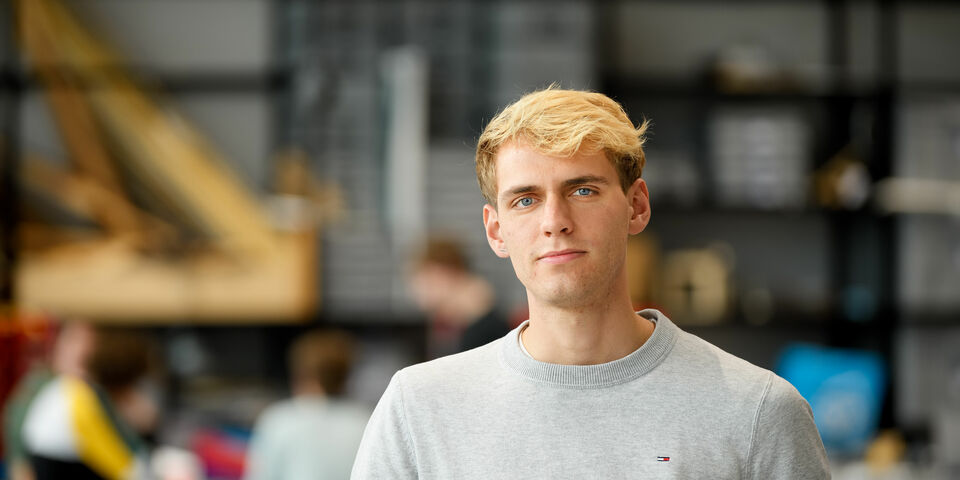Rescue swimming
It started out as a necessity. After experiencing quite severe burnout a year ago, everyone around me advised me to exercise more often. That’s the first piece of advice you get when you’re not doing so well. So I started scrolling through the website of our Student Sports Center (SSC).
I have never understood the appeal of endurance and individual sports. And the idea of nearly drowning in an uninspired swimming pool seemed even more unpleasant to me. However, the prospect of soaking up that familiar chlorine smell again spoke to my nostalgia. Together with a friend, I learned to appreciate the joy of swimming again by taking a dip six times a week.
Of course, the swimming has helped a lot. Every day, I feel better and more resilient. So that has proved its value, but in between the laps lies another - fairly cliché - valuable lesson.
As I drag myself back and forth through the SSC pool for the tenth time, I realize I haven't even reached the halfway point of the distance I set as my goal. And so, I ask myself: “Why should I do another thirty laps?" It’s no longer a necessity at this point; I could just rest by the poolside. Nothing is stopping me. No one would give me weird looks. No big stick.
Nor do I particularly want to keep swimming. In fact, after so many laps, there’s not a single muscle in my body that still feels like it. Sure, I wish I could muster up the will to continue swimming, but at this point in the training, it becomes clear that there’s no reason at all to finish. Nothing is to be gained from it, so to speak.
And then there’s the question that usually pops into your mind halfway through: “Will I be able to complete the second half?” A valid question for someone who’s learning something. This question is often the result of choking on an accidental gulp of water. It’s at that exact moment, when there’s not enough oxygen in my blood, that I start to panic. My reflexes try to take over; my body wants to stop for an extra breath of air, but swimming is all about controlling your breathing.
So I keep going and turn around for another lap, again and again. Not because I have to. Not because I want to. I do it based on the unconditional self-confidence that I’ll make it. It’s the discipline of persevering and not giving in to your first instincts, reflexes or thoughts.
I’d lost that mindset. I used to shy away from challenges as much as possible. I spent a lot of time avoiding things due to self-pity and burnout. Now that things are looking up and I’m regaining my self-confidence, I’m starting to realize again how important it is to seek out challenges and to face them head-on, especially for students.
Because, no matter how cliché it may sound, you can’t learn without challenge. Perhaps learning how to deal with complex challenges is the very thing the university is trying to impart to you.


Discussion